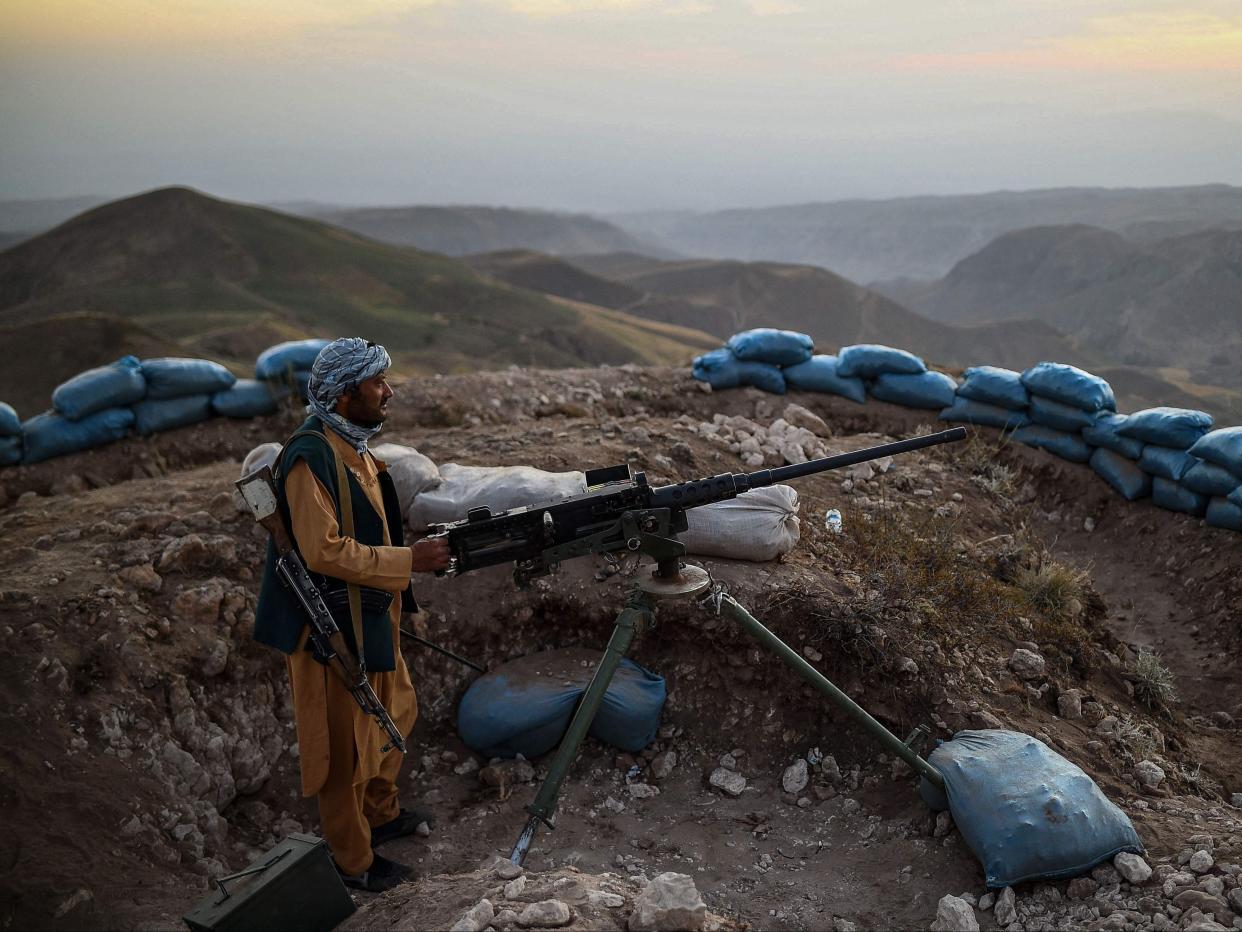US launches airstrikes amid Taliban calls for Afghan president to resign

- Oops!Something went wrong.Please try again later.
The US forces have entered the battle for Kandahar by carrying out airstrikes in support of the embattled Afghan forces amid calls by the Taliban on President Ashraf Ghani to resign.
Pentagon spokesperson, John Kirby told reporters on Thursday the airstrikes were in support of Afghan security sources but didn’t provide more details.
This comes amid the US accelerated withdrawal of troops from Afghanistan. In recent weeks, President Biden’s administration came under massive pressure from the Afghan government, which feels abandoned by western allies in the face of the Taliban- offensive, who announced they now control 85 per cent of Afghanistan.
The Taliban’s intensified attacks saw government forces and intelligence officials ceding land to the Taliban and fleeing to neighbouring countries.
Taliban spokesperson Zabihullah Mujahid told Reuters the strikes were on Wednesday night on the outskirts of the southern city of Kandahar, killing three of their fighters and destroying two vehicles.
“We confirm these airstrikes, and we condemn this in the strongest term, it is a clear attack and violation of the Doha deal as they can’t have operations after May,” he said, referring to the agreement between the United States and the Taliban which cleared the way for the withdrawal of US forces.
“If they conduct any operation, then they will be responsible for the consequences.”
The Independent couldn’t immediately reach the US forces headquarters or US embassy in Kabul for comment.
Former President Trump’s aides signed the Doha peace agreement after arduous negotiations with the Taliban. It indicates that all foreign troops were to leave Afghanistan by May if the Taliban met security guarantees.
But President Biden in April extended the withdrawal deadline to 11 September, in memory of the attack on the World Trade Center in 2001, which triggered the US invasion of Afghanistan a few weeks later.
President Biden’s decision infuriated the Taliban, who decided to swiftly ramp up their military campaign to quickly fill the security vacuum left behind the US and Nato forces.
Suhail Shaheen, the spokesperson of the Taliban, told AP on Friday the group has no plans to make a military push on Kabul. But he warned they could, given the weapons and equipment they have acquired in newly captured districts.
According to US General Mark Milley, chairman of the Joint Chiefs of Staff, the Taliban managed to bring half of Afghanistan’s district centres under their control through this major offensive. The militant group also took important border crossings and encircled or closed in on several provincial capitals, including Kandahar.
The rival Afghan sides have held peace talks in Doha but progress has been slow and the Taliban are demanding the resignation of President Ghani before any ceasefire can be agreed.
Additional reporting by agencies

